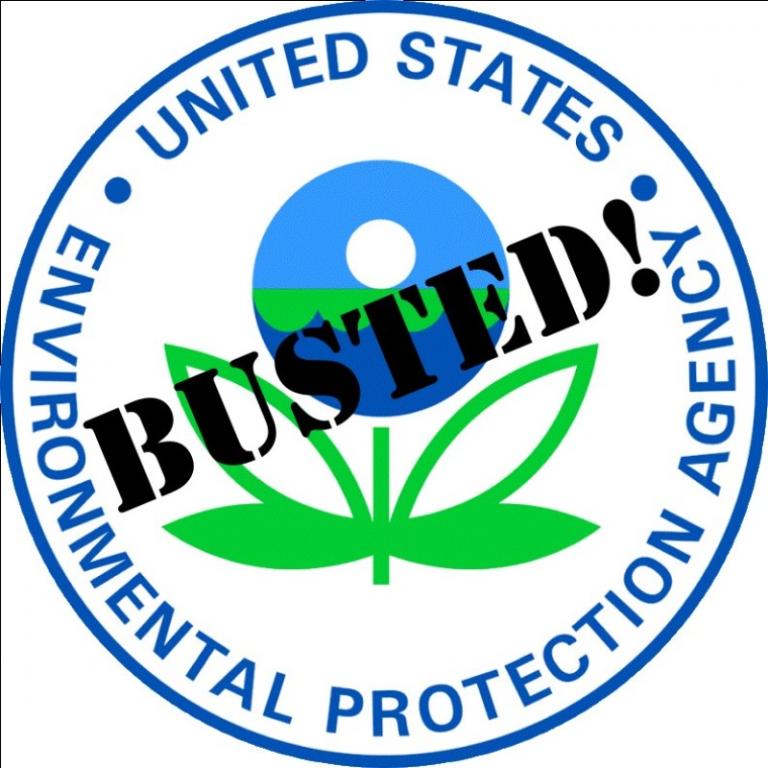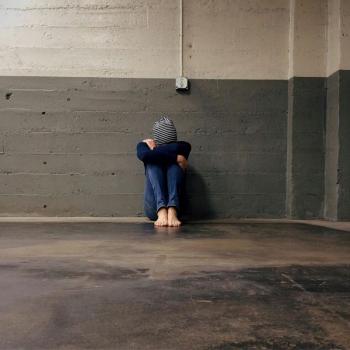When I began to address environmental issues as a pastor in my first church, I thought that “going green” could be achieved simply through raising awareness and education. I took the “five easy steps” approach (like changing to LED light bulbs, hanging laundry on the line, adopting a meatless diet, etc.). A decade later, I see that while these steps are noble, they are not effective by themselves. They can, in fact, lead to “ecological works righteousness.” Despite decades of Earth Days and countless efforts to turn the tide on climate change, the condition of our planet continues to worsen. Something more is needed.

Good intentions undermining climate movement
It turns out that encouraging people to do things like drive hybrid cars and use less plastic may have actually undermined the efforts of the climate movement. Because these individual actions lull us into delusions of what I call “ecological works righteousness.”
I base this term on the 16th-century Protestant Reformer Martin Luther’s critique of works righteousness in which he lambasted the notion that there is something people can do to earn salvation. The church at the time had a whole system whereby people could do certain things (purchase indulgences, make pilgrimages, venerate holy relics, etc.) to secure salvation. It perpetuated the individualistic notion that as long as I get mine, to hell with everyone else.
Applied to the environmental movement, works righteousness takes this line of thought: “If I just do my part, and everyone else does their part, we can save the planet.” This attitude is especially pernicious for a white, well-heeled environmentalist. For years I believed I was achieving ecological salvation when, in fact, others cannot even afford the upgrades needed for ecological purity. Green egg on my face, right?
The reality is that there are systemic forces in place that go beyond what single individuals can achieve. So we need to move beyond the green navel-gazing. According to Bill McKibben, it’s going to take a massive effort akin to the mobilization for World War II to tackle the enemy of climate change.
What the abolitionist movement teaches us
The futility of single individuals achieving ecological works righteousness may be compared to the early stages of the movement to abolish slavery in the United States. For example, before the Civil War, one or two white owners granting freedom to their slaves, while admirable, was not sufficient for liberating an entire race of people. What was needed was a national movement that captured the moral imagination of large groups of people. When organized, those groups insisted that the laws of the land be changed, and they were willing to accept the consequences of transitioning an entire economy away from slave labor.
The same must happen today. This time we need a global movement to activate the moral imagination of people who demand that laws be changed and our economy transition away from fossil fuels.
This is not to say that we shouldn’t reduce, reuse, recycle, and repurpose – absolutely keep doing these things. But we can not let this fool us into thinking everything is going to be okay. Because it’s not. The catastrophic effects of climate change are far beyond what most people can imagine. The crisis requires much more than changing light bulbs.
What should we do?
“What should we do?” the crowds asked John the Baptist after they had been submerged in the waters of repentance and arose with resolve to change (Luke, Chapter 3). He gave very specific instructions tailored to different people based on their occupations and stations in life. We, too, need specifics for how we can to change the systems which are killing our planet. [Here’s a post tailoring climate action for people of faith.]
 At the very least, we need to hold our government to the highest standards of science and research. Under the Trump Administration and EPA Disintegrator-in-Chief Scott Pruitt, the government websites containing important information about climate science have been removed. Ostensibly, the websites are undergoing “revision” [read: Deliberate misinformation is coming].
At the very least, we need to hold our government to the highest standards of science and research. Under the Trump Administration and EPA Disintegrator-in-Chief Scott Pruitt, the government websites containing important information about climate science have been removed. Ostensibly, the websites are undergoing “revision” [read: Deliberate misinformation is coming].
As this article shows, minds are changing about the climate crisis because people are paying attention to the science. So for the U.S. government to squelch or intentionally mislead the public on climate science is a misanthropic move that puts the United States on the wrong side of ethics, and the wrong side of history.
All hands on deck!
As I argue in this post, this is an all-hands-on-deck moment in the history of the church, and in the history of the human species. No matter who you are or what your sphere of influence is, you have a part to play. The time is past due for a concerted, organized effort to reduce carbon emissions. We need to aid the poorest communities in their efforts to transition away from fossil fuels. We need to ramp up research and development for clean-energy technologies. And we must seriously curtail world-wide meat consumption which is a huge contributor of greenhouse gases and pollution.
Road map for drastically reducing CO2 emissions
In this Vox article, scientists lay out a road map for achieving the goals of the Paris climate accord to stay below a 2-degree rise in global temperatures. The article is eye-opening and heavy on the math. But it lays out in very clear terms what needs to happen over the next 10 20 and and will be daunting to achieve. This is the best, most comprehensive action plan I’ve seen so far. Here’s a passage from the article:
1) Global CO2 emissions from energy and industry have to fall in half each decade. That is, in the 2020s, the world cuts emissions in half. Then we do it again in the 2030s. Then we do it again in the 2040s. They dub this a “carbon law.” Lead author Johan Rockström told me they were thinking of an analogy to Moore’s law for transistors.
2) Net emissions from land use — i.e., from agriculture and deforestation — have to fall steadily to zero by 2050. This would need to happen even as the world population grows and we’re feeding ever more people.

Martin Luther: Plant a tree
So, yes, plant a tree. Change your light bulbs to LEDs. Put solar panels on your roof. Drastically reduce your meat consumption. But make sure that we are also pushing for the bigger goal.
We need massive reduction in CO2 emissions, and a complete transition away from a fossil fuel economy. A just transition to a clean-energy future is the Great Work of our time.

Leah D. Schade is the Assistant Professor of Preaching and Worship at Lexington Theological Seminary (Kentucky) and author of the book Creation-CrisisPreaching: Ecology, Theology, and the Pulpit (Chalice Press, 2015).
You can follow Leah on Twitter at @LeahSchade, and on Facebook at https://www.facebook.com/LeahDSchade/.
- Want more ideas for connecting your faith and climate action? Here are 5 ways to cultivate our attention, and claim our individual and collective power.
- For ideas on incorporating Earth-care into faith practices and preaching, try 17 Ways to be an EcoPreacher.
- Need ideas for Children’s Sermons to help kids connect their faith with their love of God’s Creation? Try “Six Children’s Sermon Ideas.”
- Looking for sermon ideas connecting climate change and faith? Try: “Falling Off the Bike.”













